Nothing is wasted.We cannot tell people things we do not know. They will sense that we are just trying to make them feel better and they will end up feeling worse. This week I sat beside someone I love and told him what I knew: this is potent and important, but we just don’t know what it means yet - you’re in the woods and you won’t know the answer until you get to the clearing. In 2018 I was placed in a new dark place. One that I had never been to before and one that I would not have chosen for myself. It was a place born out of abandonment and rejection. Not the “I think you might be wrong” type but the “I think you’re wrong as a person” type of shame. I carried this dark place with me wherever I went. In the shower I’d think about it; walking alone I’d replay it through. Over and over I’d wonder what it all meant? I wanted to fast-forward these lessons to leave the dark place. But, it seemed, these woods were meant for me; for the future me. When I was young, I’d play in the trees behind my childhood home. To this day you could drop me in and I’d know exactly where I stood and precisely how to get home. Time and time again it was a place where I could find myself and be found. The dark place of 2018 made me feel lost and unknown. I’d wonder repeatedly about who I was and if my people really knew me at all? Where had I failed? How had I been so blind? Trying to find the path home was a long one. There were large limbs and thick manzanita blocking the way. To get through, I’d have to think and sweat. The journey would call for rest and nourishment. I would not get there in a day or even a year. It seemed to take so long, but I did find my way out. I wasn’t alone though. By the time I exited the dark woods, I was linked arm-in-arm with loved ones. People that saw me through. People that knew I’d remember my way home eventually. This is where I find myself today: not fixing or telling, but reminding. Never would I have asked for the lessons that were delivered to me five years ago. Never. But my current day self is using those lessons to know myself more deeply. To understand humans more acutely and how we hurt each other sometimes. To open myself to the compassion of others and to receive love from those that surround me. It’s both of these things that I needed to learn to become who I am today. Nothing was wasted. Not a single word. I gathered up every pine needle that cradled my footsteps, each feather on my path, all of the lichen that got tangled up in my hair. I took them all and held them close. Each part of the way home is a piece of me now. A landscape elongated to encompass both the pain and the clarity. Out of the darkness, I found my way home. You will, too. Today, I’m here to remind you of that. Your future self is waiting for you. Go to her. With Love & Backbone, Jen Copyright © 2023. All Rights Reserved.
Nice Girl Uprising, Jennifer Padilla-Burger Things are changing.This is a season of closing chapters. Good ones that were well-lived and well-loved. I’m a person that holds onto books. Sometimes I read passages over and other times I just like knowing that they have a place on the shelf. The chapters that are wrapping up in this season are the sweetest. But maybe I always think it’s this way. In my late twenties, my husband and I lived in a tiny condo in a small beach town. The galley kitchen held our washer and dryer as well as the stove and appliances. When I got pregnant with our first child, we both could not comfortably be in the kitchen at the same time. It was small and cozy and just right. I told myself I could stay there forever, because the season was so good. But we didn’t. We’ve lived in other towns since. We’ve had jobs and left them. We’ve acquired pets, more rooms, and another child. It has been important to me to build something that is lasting and true. I’d spend hours watching my kids build lego structures that now remain intact and unplayed as they’ve aged out of that phase. I think about my clients and the goodbyes that were said over the past two decades. In my early work as an in-home therapist for the foster care system, I can remember working with a surly red-haired teenager. It seemed like she merely tolerated my presence. Some kids embraced therapy and others observed from the sidelines until it felt safe to enter. When I was about to move away to the beach town where that tiny condo awaited us, I had to say goodbye to this fiery teen. I thought she’d shrug off my goodbye, but she sat across from me with her chin wobbling and cried hard about missing me. Even when we seem closed off to change, it happens anyway and it hurts just the same. I think about the times my goodbyes with friends caused my throat to tighten up with words both said and unsaid. Tears welling up and an inner mix of both hurt and yearning. Relationships that were so fun and good while they were in that sparkling season. Then the new ache of driving away knowing things would never be the same again. I never understood that to love someone fully meant to be constantly grieving. That’s why nostalgia is so appealing. It’s wanting the thing that you built in the past while simultaneously building the future. We’re always saying goodbye to something. We’re always moving towards something else. Last month I stood in my kitchen making Valentine’s Day cookies for my daughter’s classroom. It struck me that this would be the very last time I made cookies for a school heart party. She is aging out and the chapter is closing. This is right and it’s also sad. There are many chapters that are closing for me in this season. Some of them are closing at the same time and others will stretch themselves out. I cannot read them more slowly. This will not stop the process. I can only read the words as they come and let myself feel the weight of what they have to say. I haven’t lived in that small beach town with the cute condo in over ten years. However, when I think of it now my heart gets all warmed up. About once a year I drive to that town, park my car, and walk to the beach. I feel my feet in the sand and I let the tears come, telling myself, “This was good. This was so good.” These losses feel like aches because I lived those moments fully. I put my whole self into them. Letting love pour out of me and into creating a life that would shift and change. It’s always a season of grief and new beginnings - it’s both. It’s sad and exciting. Memories and hopes. Backwards and forwards. Holding and growing. Both. They never told me that it would be this hard or that I would get choked up watching these “last” moments play out. They also never told me how rich and deep and wide my love could grow. I could only learn this by living the chapters and then letting them end. All my love, Jen Copyright © 2023. All Rights Reserved.
Nice Girl Uprising, Jennifer Padilla-Burger But how do you let it go?Let's talk about something that affects all of us, but is seldom talked about: friendships ending. I met up with an old friend a few weeks ago. She wanted to share her heartbreak. Pain from friendships changed. We all have friendships that have faded, that have ended dramatically, or sometimes halted without words or explanation. No friendship follows a specific story line and there is no guarantee that it will last. It’s jarring when we lose someone we care about. A future planned out, that will never actually happen. The grief and confusion may cause us to wonder why we invest in friendships at all. As a person who studies relationships, I think it’s the connection between humans that sustains us. The shared time with another person reminds us of why we’re here. It’s the mutual laughter and space held for us during dark periods of our lives. Even though there may be anger and loss at some point in the story, friendship is worth it. I recently read, “Talking With Strangers,” by Malcom Gladwell. He writes about how we’re often terrible at spotting a liar. However, he makes a compelling argument that our species would suffer if we opted to be suspicious of others rather than open. He writes, “Those occasions when our trusting nature gets violated are tragic. But the alternative - to abandon trust as a defense against predation and deception - is worse“. The loss of a friendship can take us down. It can make us wonder if we’ll ever trust again. Losing a treasured relationship can plunge us into the abyss. We might doubt ourselves. Question our words and replay every conversation. We can easily spend hours trying to understand. Whenever something difficult happens, I always think I’ll feel better if I can just understand why. We’re meaning making people. We like to take fragments of information and compile whole stories. We think a beginning, middle, and end will soothe our anxious minds. It doesn’t work. It’s not understanding that we need, it’s acceptance. Whatever happened; happened. We can’t go back and change it. There’s nothing to fix. So much of our lives can be repaired through doing, but this part is more about being. I’ve heard forgiveness being described as, “Accepting that the past could not have gone differently.” This idea has often aided in my healing. When I can let my mind rest, my heart can begin to restore. With acceptance I can begin to hold the story a little lighter. I can remember the wholeness of the person and the relationship. No person is all-good or all-bad and neither is the story. When I no longer push against what happened and the break, I can let love back in. I can tend to my heart and my body. Letting my wisdom show me what has been gained and what can be released. How do we let go? Slowly. Healing can be a long journey. We need to feel what’s there and take our time. The winding road will eventually lead us back to ourselves. Acceptance is when peace returns. If your heart is breaking and trying to understand why, trust that it will not always be this way. The midnight hour doesn’t last forever. The break is just one small part of your whole story. (And no matter how it ended, it was probably worth it). With Love & Backbone, Jen Copyright © 2022. All Rights Reserved.
Nice Girl Uprising, Jennifer Padilla-Burger All that Self-Care and You’re Still Burned Out (of Course You Are). It’s 2022 and I’m about to send a newsletter out to the Nice Girl Uprising community about burnout. As I was editing the newsletter, a blog that I had written in the Spring of 2021 popped up. I remembered that I had poured my heart into it then my laptop refused to connect to my printer. The devices had stopped communicating and it was just too much for me to handle. Instead of fixing it I took a nap on the couch in the middle of the afternoon. Sleeping…in the afternoon. Guess what the blog was about? Yep: burnout. It makes me want to laugh-cry that almost one year later, burnout is still impacting me. But of course it is, right? How could we possibly be okay after making it through these impossible times? I read through my words from 2021 and they’re still true. So here it is: let’s talk about burnout. I’ve been waiting to say the right thing. To have learned all of the good lessons and condense them down into something quick and memorable. 2021, however, has been a long year and it’s only May. About a month ago, I realized something was wrong. I was so tired. Tired, tired. For the first time in a long time I was having to motivate myself. Mini pep-talks to get through life. Basic things like work, little league baseball games, and dates with friends. My energy was so low, I had to cup it with both hands so the flame wouldn’t burn out. Then I realized: I was, indeed, entering burnout. So what is burnout? Jill Lepore from The New Yorker describes it like this, “To be burned out is to be used up, like a battery so depleted that it can’t be recharged. In people, unlike batteries, it is said to produce the defining symptoms of ‘burnout syndrome’: exhaustion, cynicism, and loss of efficacy.” Though burnout has historically been used to describe a response to workplace stress, it can be argued that burnout can be caused by other stressors too. Oh I’ll argue it, in fact. If you took care of anything in 2020 may it be a child, a dog, or a houseplant, you’re probably burned out. 2020 was a beast. We learned to live with uncertainty, constant changes, political divisiveness, fear and confusion about a virus, worked from home, became our kids’ teachers, and had severely limited social support. It was exhausting. My professional self would like to use the word “challenging” to sum it up, but I’m going to go ahead and call the year “grueling”. In the book, “Burnt Out: The Exhasuted Person’s Six-Step Guide to Thriving in a Fast-Paced World,” Selina Barker lists the following symptoms of burnout:
The author differentiates full-blown burnout from a mini burnout (which I had) by the number and severity of symptoms and the amount of time it would take to recover. Full-blown burnout may keep you out of normal life functioning for several weeks whereas a mini-burnout could last a few days. When I noticed this started happening for me, I had to ask two very important questions. The first question was, “How do I differentiate burnout from depression?” This is a tricky question to answer because burnout can co-occur with depression and depression can look a lot like burnout. I think we need to look at our schedules, the triggers to our symptoms, and consult a mental health professional to gain clarity. I realized that I was over-doing for too long. I pushed hard and kept adding more to my plate. The extra busy-ness began to feel normal. I felt like I had the capacity for more. More was normal. Comfortably uncomfortable. The second question I had was, “With all of this self-care how in the world am I burned out?” The quick answer: NO FREE TIME. I’m a self-care doer and be-er. I love my self-care. I say NO, I gua sha my face, I drink half of my body weight in ounces of water, I go on walks, I meditate, I read, I workout, I spend time with my family, I have coffee with good friends. I do the things. Every day. I tell other people to do the things. I’m self-care’s biggest fan. But 2020 reduced our orbit. Some of us worked from home. We didn’t go out as much. We saw our extended friends and family less. The commute from work to home, teaching to making, cleaning to the next activity was short. We sort of just changed our hat and carried on without missing a beat. But we missed something really important: connecting with ourselves. We tune-in through free time. Time that is unscheduled and open. Time that we can use playing the guitar, watching Netflix, or swinging in the hammock with the sole purpose of connecting with ourselves. Free time. Time to do whatever we please. We don’t really have that anymore. So I had to make it. I had to set the brake. I made an agreement with myself to limit my work hours and caseload. I made the commitment and told others about it. Accountability is what I needed when the asks re-entered my world. I had to say NO (a lot). If I found something to be too energetically taxing, I said no. If I had to squeeze the thing in or if it would cause me to rush, I said no. If the thing activated my anxiety or caused a sense of dread, it was a no. No, no, no. The duty of yes got me here so the love of no was going to help me get out. Then I had to move beyond self-care. I needed free time. I started putting space in my day. I attempted to relax when the schedule didn’t call for a plan. I tried to be slower when I spoke, when I transitioned from one thing to the next, when I made decisions. Burnout is rushed and exhausted. Freedom is slow and full. I want freedom. Why am I sharing my experience of burnout with you? Because I want to give a name to the experience that so many of us are having. I want to normalize it, validate it, and help you move through it. If you connect with any of the symptoms of burnout, I encourage you to learn more about it. Find articles, read books, contact a coach or a therapist. Most importantly, connect with yourself and choose the path of healing that feels right for you. You might be experiencing burnout and that’s okay. You can make shifts in your life that will bring you peace. Trust me, there’s so much less to do. Copyright © 2022. All Rights Reserved.
Nice Girl Uprising, Jennifer Padilla-Burger
|
|





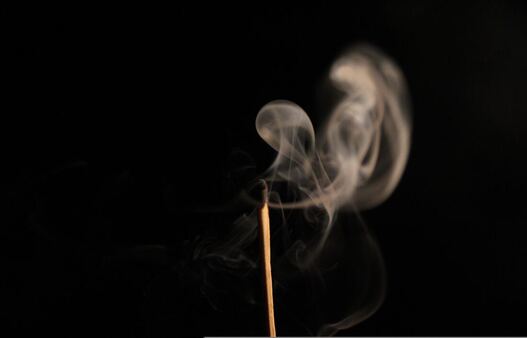


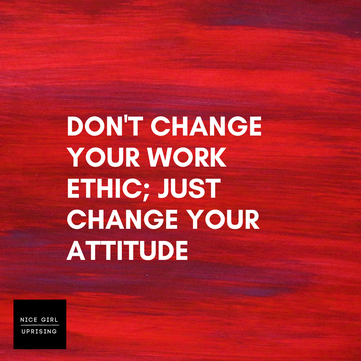

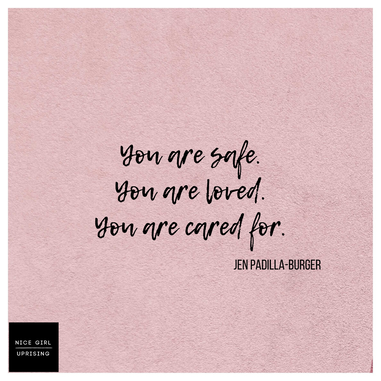
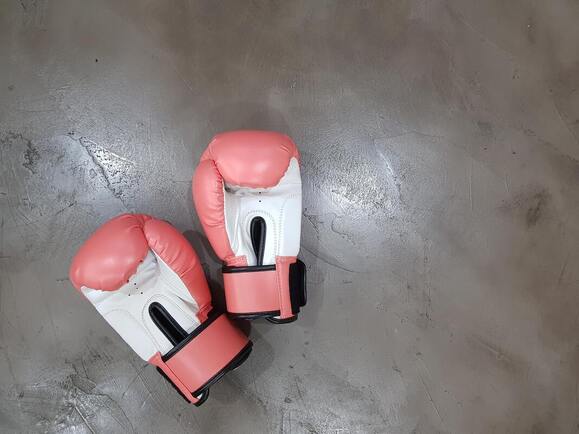
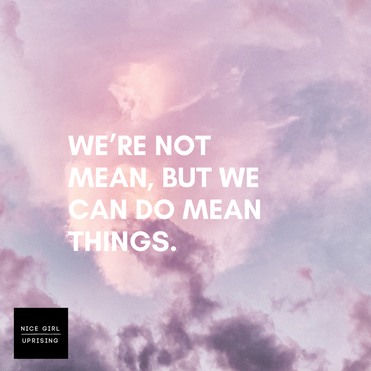
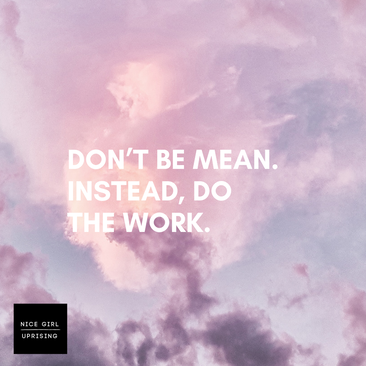

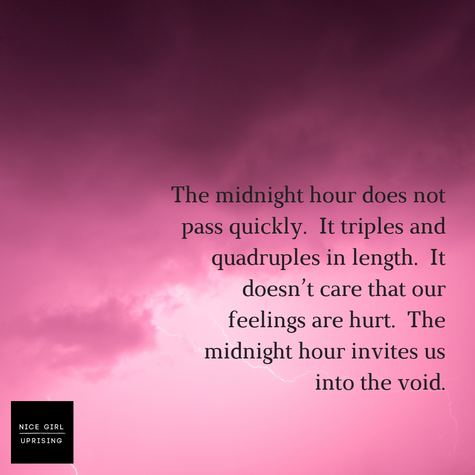
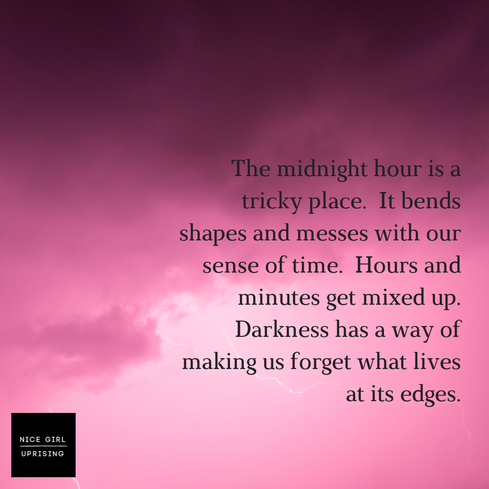
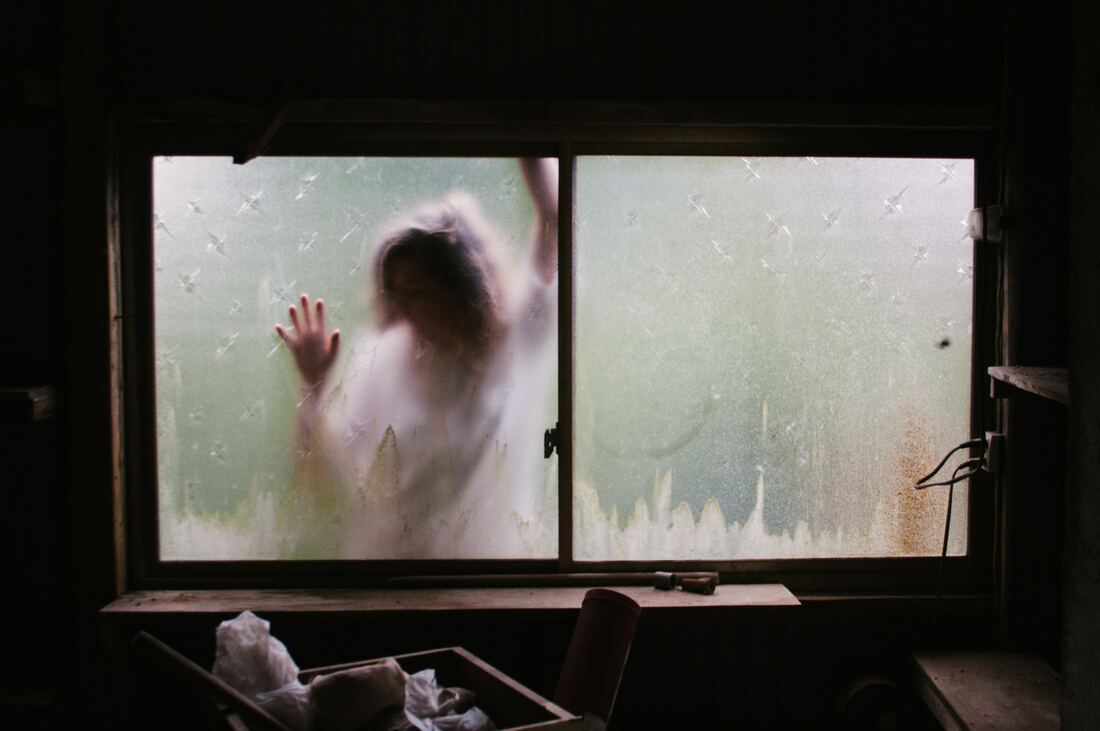
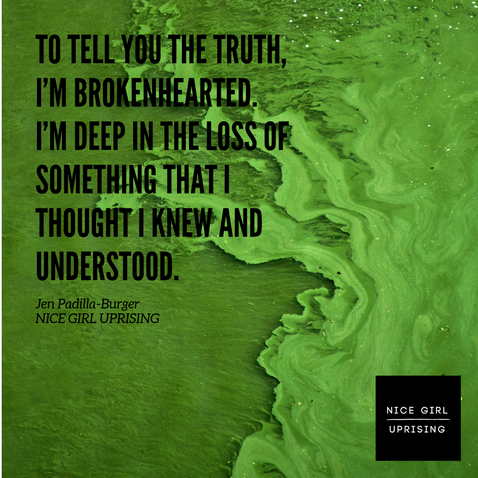
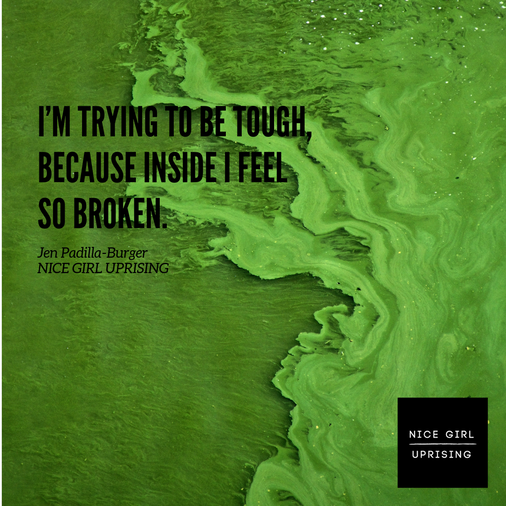
 RSS Feed
RSS Feed